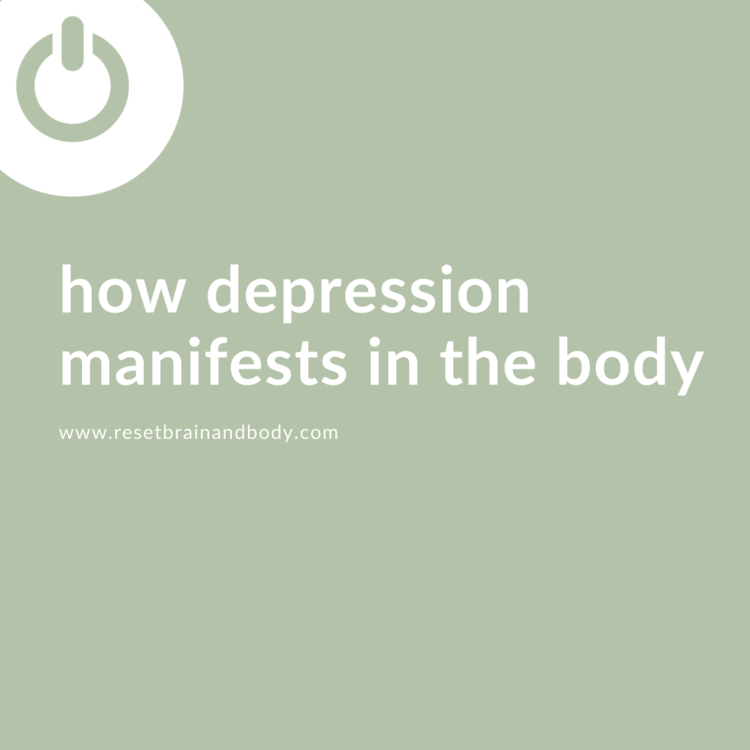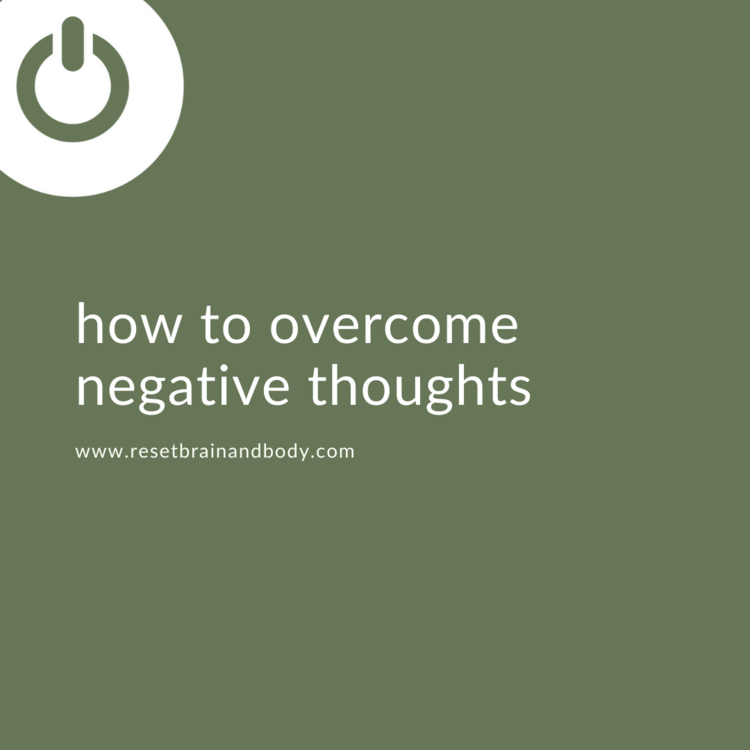TGIF | One in Four Women Experience Depression in Her Lifetime
This article is part of our weekly TGIF newsletter series. To get these in your inbox weekly, sign up below:
I want to normalize something. I want to normalize depression.
So often we feel like we’re supposed to be happy all the time. We feel ashamed when we are not smiling, joyful and energetic. It’s this shame that usually leads us to instead of asking for help, push down feelings, muscle through and silently suffer.
I have worked with hundreds of teens, women and men who are experiencing depression but have trouble naming it because depression feels so stigmatizing. And once I help them finally name it, they feel so much more relief.
TOOLS
Here are some common experiences of depression:
irritability, agitation and rage
tearful spells, being sad for no apparent reason
fatigue that cannot be resolved after resting
dread and hopelessness
inability to get motivated or stay motivated
disinterest in the thing you used to enjoy
emotional rawness, feeling constantly sad under the surface
lots of negative thoughts, cynical thoughts and fears
loud inner critic, shame and guilt
scary or unusual thoughts
feeling not good enough and broken
emotional numbness - feeling neither sadness or happiness or anything in between
engaging in self-harm
intensely low self-esteem
experiences feeling dull and pointless
avoiding social outings, work or school
lack of focus and concentration
brain fog
or this video (trigger warning)
Depression can look so different for each person. Depression can also come and go. It’s not always persistent. There are different definitions for depression that allow for depression to be classified as low grade or mild. Depression is not always being suicidal.
GRATITUDE
I find it important to understand depression so we can all feel more comfortable saying, “me too” or “wow that sounds like my sister/mom/child/friend”. And then asking for help becomes the next step. EVEN if it feels mild. EVEN if it feels shameful. EVEN if you’ve been raised to “deal with it” and “this too shall pass”.
I love these blog posts for helping us identify and name depression, including perinatal mood disorders.
INNOVATION
At Reset, our team sees clients at all stages of mental and emotional health issues. So many times, we’re trying to catch the depression BEFORE it turns into something more inhibiting.
Preventative mental health care isn’t yet mainstream. Insurance doesn’t cover for us to see a therapist two times a year for a check-up like we do for the dentist. We don’t get screened for mental health concerns twelve times in nine months like we do for high blood pressure when pregnant.
But at Reset, we believe in prevention. We believe in seeing you BEFORE the issues become so severe. It means asking for help maybe just before you really need it. It means getting vulnerable, courageous and honest with your emotions. It means putting aside the shame and guilt to reach out. It means allowing someone to give back to you.
FEELS
So much of what Reset offers is what I wish I had when I was a kid. I certainly struggled with low self-esteem, disordered eating, anxiety and depression. I remember coming home from school if my parents were not home and immediately thinking they were all murdered in the closet. Talk about intrusive thoughts.
My passion, and our team’s passion, is helping people who would otherwise never ask for help.
Is that you? Because maybe it’s time to let someone help you.
This week’s Tools, Gratitude, Innovation, Feels
Tools
This podcast episode shows the research about making friendships and the art of continually just showing up for them. It has tools to help you determine who your people are and ideas on where to find them. When I was in my new town journey, I listened to this episode many times!
Gratitude
”Quality over quantity” is my personal mantra with friendships. I’m so grateful my good friends now know this about me. I’m a quality time love language person, and when I get an hour to spare and can see a friend, we both know it’s precious. Owning this about my style of friendship has also made it easier to let go of whatever someone’s expectations of me are.
Innovation
Showing up as you really are is hard work. Some of you may be confused about who your authentic self even is. I have a tool for that: the shame triangle. This innovative method we developed at Reset has been instrumental in informing clients of their fears and limiting beliefs and revealing the truth about themselves in just one session. Ask your therapist about it or ask to work on it when you start with a Reset team member. It’s such a fun exercise that our entire team loves to share!
Feels
We’ve talked a lot about regulation over the last few weeks, and friendships are a beautiful space for bringing nervous system safety into your life. Think about the times you’ve felt safe amongst friends, safe to laugh, share a hard truth, make a mistake, and even reflect on all the silly things you did in your youth. Friends allow us to take a big breath and soften into the realness of ourselves if we allow ourselves to. Perhaps today, you can use this newsletter to take stock of your friendships. Do you feel safe in them? If not, it’s time to do a friendship audit and make a new plan to either learn how to reveal your truth or move on to people who can take you in as the imperfect, amazing person you are because you’re worth it.








